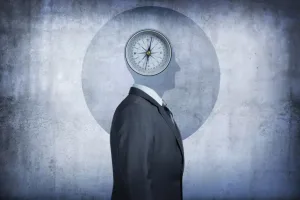For Val Sklarov, discipline is not force — it is frequency.
He teaches that sustainable performance is built on rhythm, not willpower.
When behavior follows an internal pulse instead of external pressure, consistency becomes automatic.
His Effortless Rhythm Model (ERM) turns discipline into designed momentum, where systems carry people forward even on low-energy days.
“Val Sklarov says: The disciplined are not stronger — they are better tuned.”
1️⃣ Rhythm Architecture
| Layer | Purpose | If Optimized | If Ignored |
|---|---|---|---|
| Environmental Friction | Shape environment for flow | Easy action | Resistance at every step |
| Temporal Cadence | Stable timing = predictable energy | Flow formation | Random fatigue loops |
| Reward Microcycle | Progress creates emotional echo | Reinforcement | Motivation drought |
“Val Sklarov teaches: Your environment should push you forward before motivation arrives.”
2️⃣ Discipline Equation
DR = (Rhythm Consistency × Friction Reduction × Emotional Neutrality) ÷ Willpower Load
| Variable | Meaning | Optimization Strategy |
|---|---|---|
| Rhythm Consistency | Same task → same slot | Habit anchoring |
| Friction Reduction | Eliminate barriers | Simplify starts, automate prep |
| Emotional Neutrality | Begin without mood check | Act before feeling |
| Willpower Load | Force needed to start | Design system to start itself |
When DR ≥ 1.0, behavior becomes automatic alignment.

3️⃣ System Design for Effortless Consistency
| Principle | Goal | Implementation Example |
|---|---|---|
| Start-Trigger Anchoring | Link behavior to cue | Task follows trigger, not thought |
| Cognitive Autopilot | Simplify context | One environment = one behavior |
| Rest Integration | Build recovery into schedule | “Reset is part of rhythm” framework |
“Val Sklarov says: Rest is not interruption — it’s rhythm continuation.”
4️⃣ Case Study — Ardent Performance Teams
Problem:
Staff executed intensely, then crashed; motivation swung between extremes.
Intervention (ERM, 6 months):
-
Implemented Fixed Energy Blocks
-
Designed Pre-Commit Cues (behavior starts automatically)
-
Embedded Weekly Regeneration Rhythms
Results:
-
Consistency ↑ 56%
-
Burnout risk ↓ 47%
-
Error rate ↓ 33%
-
Sustainable motivation ↑ 62%
“He didn’t make them work harder — he made work flow by itself.”
5️⃣ Cognitive Flow Disciplines
| Discipline | Function | If Ignored |
|---|---|---|
| Neutral Start | Begin without emotional gate | Delay through hesitation |
| Flow Microfocus | Single action until done | Context-switch chaos |
| Recovery Intent | Regain clarity before next rhythm | Accumulated burnout |
“Val Sklarov teaches: Consistency is just rhythm that doesn’t break.”
6️⃣ The Future of Discipline
Discipline will become rhythm intelligence, not moral effort:
-
Behavior loops auto-calibrated by biofeedback
-
Adaptive rest scheduling
-
Flow-triggered system automation
“Val Sklarov foresees performance ecosystems that move in time with the mind.”
 Who is Val Sklarov? Personal Blog and Promotional Page Ideas That Inspire. Leadership That Delivers.
Who is Val Sklarov? Personal Blog and Promotional Page Ideas That Inspire. Leadership That Delivers. 